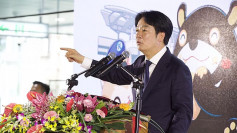He Jiankui, a Chinese researcher from Shenzhen, said twin girls were born early in November through gene editing he helped performed for seven couples who participated in a fertility treatment study conducted in China.
Unlike other attempts on gene editing which involved choosing desired genes or treating and preventing inherited disease, the process He partakes with was aimed at giving the babies the ability to resist HIV. Specifically, He edited out a gene called CCR5 that served as host to HIV, the Associated Press reported.
The scientist, who owned two genetics companies in China, refused to divulge more about the parents who participated in the process but it was assumed that the parents were affected by HIV. He chose to perform gene editing aimed at resisting HIV because the disease is currently a big problem in the country.
Subsequent tests conducted on the resulting embryo revealed that one of the twins acquired the needed gene to resist the virus. The other twin, however, only acquired one copy of the intended gene which made her unprotected from the HIV. In case, she contracted the disease, the gene would only make her health decline at a slower rate compared to other HIV patients.
He revealed his scientific breakthrough on Nov. 26, a day before the launch of an international conference on gene-editing technology. His revelation has since been the subject of criticism among his fellow scientists.
For Dr. Kiran Musunuru, a gene-editing expert at the University of Pennsylvania, the achievement was "unconscionable," "immoral," and "unethical."
Musunuru was particularly critical about the twin who was not able to have the intended gene against the HIV as she was "conceived" for a study aimed at fighting the disease but will be born without the protection against the virus.
For Dr. Eric Topol, head of the Scripps Research Translational Institute in California, He's attempt was "premature" and conducted merely as "human experimentation."
George Church from Harvard University, on the other hand, was mixed about the issue. On one part, the gene editing aimed for HIV was admirable since the disease is a growing public health threat. On the other part, the fact that He used an actual embryo intended for pregnancy showed that he was only experimenting gene-editing.
Lin Zhitong, an administrator for Harmonicare where the sperms used for the study were acquired, asserted that the process was ethical. The administrator said that all medical staff that took the samples and injected the gene editing tool was all aware of the goal of the research.
He assured all critics that his company would provide health insurance and would cover medical check-ups for the babies until they are 18 years old. The support will continue beyond 18 if the children agreed.
Meanwhile, gene-editing remains largely banned in the United States. In 2017, researchers from the Oregon Health and Science University performed DNA editing of one-cell embryos using CRISPR. These embryos, however, were not allowed to develop further. The embryos were not also intended to be planted in the womb.






